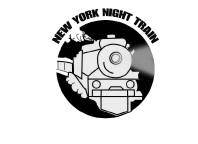

 |
 |
||||||||
|
Brother
Reverend
Atlanta to New York transplants who used to perform with the likes of Anna Karina and Cat Power, The Brother Reverend, while still a bit of an obscurity around these parts, have been delivering their brand of classic American pop in Brooklyn and Manhattan sporadically for over a year. Their leader, current Bronx resident Bug Jones, is a lanky Dylanesque figure that assembles tightly wound compositions and scrawls uncommonly witty and poignant lyrics. While they don’t offer much new musically, like the former A-Fir-Ju-Well and some of the other fine Atlanta outfits of the last decade or so, the band has a keen sense of American music history and reference all kinds of lost elements contemporary bands are typically afraid to touch. The originality is in how they synthesize those points of reference. If you had to locate The Brother Reverend’s sound, it’s vast but definitely self-consciously belongs to a chronological time and place, somewhere after rock’n’roll “died” and around the time The Beatles were changing everyone’s idea of what pop was in the US, when Tin Pan Alley songwriters breathed their last breath, and their was an odd intersection of regionalism and mass culture – think 1959 to 1969 – the Brill Building, Muscle Shoals, McDougal Street, Music Row, American Studios, and other former geographical points that have become simulacrums and, despite brief vogues every now and them, seem further and further removed from our collective mind. Definitely not the 1960s that have been fashionable the last couple of years. The Brother Reverend’s debut EP, First Ripe, First Rotten, though clocking in at less than eleven minutes, packs a heavy punch and offers a fine glimpse of things to come. The band is very together and on top of the beat, moving swiftly, confidently, and soulfully through four very hooky A-sides – if there is such a thing anymore. The opener, “Wish I Was Here,” opens with a Brenton Wood-y riff that’s turned on its head by a simple organ melody after a few bars, before taking off into a perfect progression of pop events. “Shut the Door” is a beautiful Southern soul ballad (“When the night shows you the door…”) that stands a 66% chance of making you cry. “Parasites” is allegorical story-song, that, while bouncing along and quoting the old Thunderbird ad (“What’s the word, Thunderbird/What’s the price, thirty twice”), concludes its thief’s night out “with all these parasites, you’re bound to get one right.” The finale, “The Atmosphere In Here,” by musically quoting “Lonesome Lovesick Blues," takes on the entire lineage of American pop, going back to a Jewish Tin Pan Alley songwriter in the 1920s imitating black southern music, picked up by blackface Georgian Emmett Miller in the last waltz of the minstrel tradition, backed by contemporary New York jazzers with Chicago origins like Benny Goodman and Gene Krupa, pre-swing era, dug out of the bins by Hank Williams when he was helping define the pop music that would be called country and western a quarter-century later, and, after passing through dozens of other links, finding its way to us in 2006 tucked in between a heavy descending mid-1960s style pop progression in a Brother Reverend song. And this, ladies and germs, is some serious DNA to emphasize without sounding stale. Maybe you don’t know where I’m coming from... so, to put it more simply, these’re some well-built domestic toe tappers in our finest tradition made without sweatshop labor - suitable for listening, dancing, and/or making out.
|
 |
||||||||
 |
|||||||||
